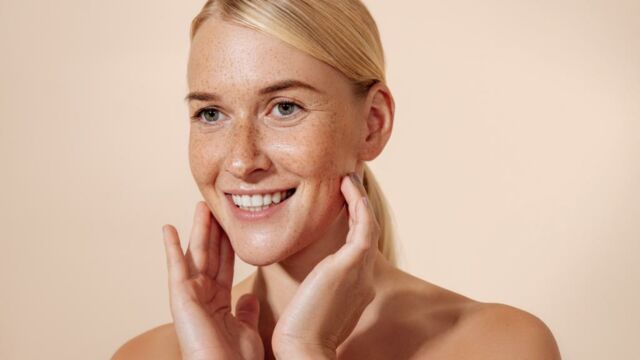As a woman, you've probably noticed that your body changes over time. It goes through different phases as you get older, and it's not uncommon for women to grow chin hair in their adult years – or any time for that matter. While some women experience this change in the same way they've always experienced it (nothing at all), others might notice new facial hair growth that wasn't there before.
Discover our latest podcast
In my experience, I have a single black hair on my chin that I have totally embraced and even named Mathilda. She is very stubborn and precise: no matter how many times I pluck it, she always comes back in the same exact spot.
A common cause of chin hair growth in women is a condition called hirsutism.According to Mayo Clinic, hirsutism is defined as the presence of excessive hair, particularly on the face and body which appears due to increased androgen levels (male hormones). These hormones are present in both men and women —but they're usually present at different levels and aren't always evenly distributed throughout the body's tissues or organs.
Polycystic ovary syndrome (PCOS)
Mayo Clinic says that PCOS could be causing the growth of excessive hair – including chin chair:
This condition, which often begins with puberty, causes an imbalance of sex hormones. Over years, PCOS may slowly result in excess hair growth, irregular periods, obesity, infertility and sometimes multiple cysts on the ovaries.

Other causes of chin hair
Cushing syndrome
Cushing syndrome is when your body is exposed to elevated cortisol levels. It can occur if you take long-term prednisone therapy or if your adrenal glands produce too much cortisol says Mayo Clinic.
Tumours
Although this is rarely seen to be the case according to Mayo Clinic, hirsutism can be brought on by an androgen-secreting tumour in the ovaries or adrenal glands.
Disclaimer: The contents of this article: text, graphics, images, and other materials contained, are strictly for informational purposes only. The content is not intended to be used as a substitute for professional medical diagnosis, advice, or treatment. Please always seek the advice of a qualified health provider with all the questions that you have related to, or about, a medical condition.
Sources used:
Mayo Clinic: Hirsutism















